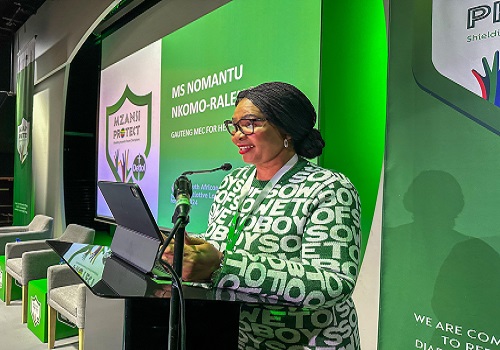
The launch of the In Safe Hands training programme through a partnership between the Gauteng Department of Health (GDoH) and Dettol will go a long way in improving hygiene practices among mothers and children, focusing on reducing preventable infections linked to poor hygiene.
According to the Saving Mothers Report of 2020 – 2022, statistics show that for every 100,000 live births, 126 mothers lose their lives, while the National Department of Health’s Strategic Plan for 2020 – 2025 reports that there are 32 deaths per 1000 live births for children under five years. Some of these deaths are caused by infections, which could have been prevented through simple hygiene practices.
The training which was unveiled among healthcare workers gathered at Melrose Arch on Friday (04 October) under Dettol’s Mzansi Protect and In Safe Hands campaign will educate healthcare professionals such as nurses to empower pregnant women and new mothers with the knowledge to adopt better hygiene practices at home. The collaboration with Dettol is part of a broader effort to address maternal and infant mortality caused by preventable infections.
Gauteng MEC for Health and Wellness, Nomantu Nkomo-Ralehoko, emphasised the importance of hygiene in reducing preventable infections. “We know that clean hands can save lives, particularly those of vulnerable mothers and newborns. This programme is an investment in the future of maternal and child health. By equipping our healthcare workers with these skills, we can make a significant impact in preventing infections and improving health outcomes.”
The programme is being piloted across 16 health facilities in Gauteng comprising of hospitals and clinics with the aim of eventually rolling it out to other provinces. Dettol’s Global Marketing Director, Issaih Haruna, highlighted the brand’s global commitment to improving hygiene-related health outcomes.
With initiatives such as this, Dettol is looking at reducing hygiene-related infections or diseases in children, through educating mothers and the community about the importance of good hygiene and influencing behaviour change.
This initiative is not only aligned with the United Nations’ Sustainable Development Goal 3, which seeks to ensure healthy lives and promote well-being, but it also supports the South African government’s National Development Plan 2030, which includes reducing maternal and child mortality.
The program will equip healthcare workers with essential training and educational materials to support new mothers in maintaining proper hygiene practices. The pilot aims to foster long-term hygiene behaviour change, improving both maternal and infant health outcomes.
SOURCED FROM THE GPG WEBSITE.

